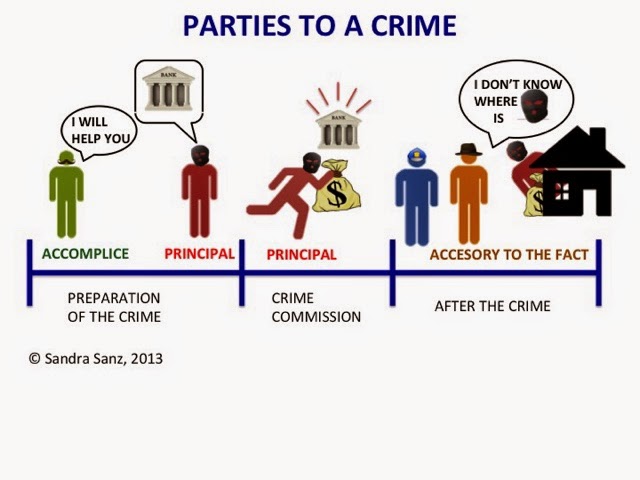What Are The Marriages That May Be Legally Separated?
As the title of this post says, not all marriages celebrated in the Philippines can be legally separated. Only those that have the valid grounds provided in the Family Code of the Philippines can be petitioned for such.
In my previous post Legal Separation Versus Declaration of Nullity/Annulment of Marriage (http://dailyservingoflegalmatters.blogspot.com/2014/03/legal-separation-versus-declaration-of.html), it was defined there what legal separation is and what does it entail.
Again, legal separation does not severe the existence of a marriage bond. The marriage ties do still exist but the husband and wife are separated in board and lodging. Meaning, they are allowed to live on their own and mind their own separate lives. Considering that the marriage exists, they are not allowed to remarry, otherwise, they may face criminal consequences.
Grounds for Legal Separation:
1. Repeated physical violence or grossly abusive conduct directed against the petitioner, a common child, or a child of the petitioner.
2. Physical violence or moral pressure to compel the petitioner to change religious or political affiliation.
3. Attempt of respondent to corrupt or induce the petitioner, a common child, or a child of the petitioner, to engage in prostitution, or connivance in such corruption or inducement.
4. Final judgment sentencing the respondent to imprisonment of more than six years, even if pardoned.
5. Drug addiction or habitual alcoholism of the respondent.
6. Lesbianism or homosexuality of the respondent.
7. Contracting by the respondent of a subsequent bigamous marriage, whether in the Philippines or abroad.
8. Sexual infidelity or perversion.
9. Attempt by the respondent against the life of the petitioner.
10. Abandonment of petitioner by respondent without justifiable cause for more than one year. (A child shall include by nature or by adoption.)
Note: Petitioner refers to the victim spouse or the aggrieved spouse, one who files a petition for legal separation in court while the Respondent refers to the guilty spouse, one who answers the petition for legal separation in court.
Instances When the Petition for Legal Separation May Be DENIED:
1. Where the aggrieved party has condoned the offense or act complained of.
2. Where the aggrieved party has consented to the commission of the offense or act complained of.
3. Where there is connivance between the parties in the commission of the offense or act constituting the ground for legal separation.
4. Where both parties have given ground for legal separation.
5. Where there is collusion between the parties to obtain the decree of legal separation.
6. Where the action is barred by prescription.
When to File the Petition for Legal Separation?
An action for legal separation SHALL be filed within FIVE (5) YEARS from the time of the occurrence of the cause, otherwise, the action shall prescribe.
Duty of the Court:
The Court shall take steps toward the RECONCILIATION of the spouses and that it shall be fully satisfied with the steps taken, otherwise, no decree of legal separation may be given.
Stipulation of Facts or a Confession of Judgment:
Stipulation of facts or confession is not allowed. No decree of legal separation shall be based upon stipulation of facts or confession of judgment.
The Court shall order the prosecuting attorney to prevent collusion between the parties and to take care that the evidence is not fabricated or suppressed.
Effects of Decree of Legal Separation:
1. The spouses shall be entitled to live separately from each other, but the marriage bonds shall not be severed.
2. The absolute community or the conjugal partnership shall be DISSOLVED and liquidated but the offending spouse shall have no right to any share of the net profits earned by the absolute community or the conjugal partnership, which shall be forfeited in accordance with law.
3. The custody of the minor children shall be awarded to the innocent spouse, subject to the provisions of the law.
4. The offending spouse shall be disqualified from inheriting from the innocent spouse by intestate succession. Moreover, provisions in favor of the offending spouse made in the will of the innocent spouse shall be revoked by operation of law.
Donations and Designation of the Offending Spouse as Beneficiary:
After the finality of the decree of legal separation, the innocent spouse may REVOKE the donations made by him or by her in favor of the offending spouse, as well as the designation of the latter as a BENEFICIARY in any insurance policy, even if such designation be stipulated as IRREVOCABLE.
The action to revoke the donation must be brought within FIVE YEARS from the time the decree of legal separation has become final.
Effects of the Reconciliation of the Spouses:
If the spouses should reconcile, a corresponding JOINT MANIFESTATION under oath duly signed by them shall be filed with the court in the same proceeding for legal separation. It shall have the following effects:
1. The legal separation proceedings, if still pending, shall thereby be terminated at whatever stage; and
2. The final decree of legal separation shall be SET ASIDE, but the separation of property and any forfeiture of the share of the guilty spouse already effected shall subsist, unless the spouses agree to revive their former property regime.
The court's order containing the foregoing shall be recorded in the proper civil registries.
Source: The Family Code of the Philippines


Comments
Post a Comment